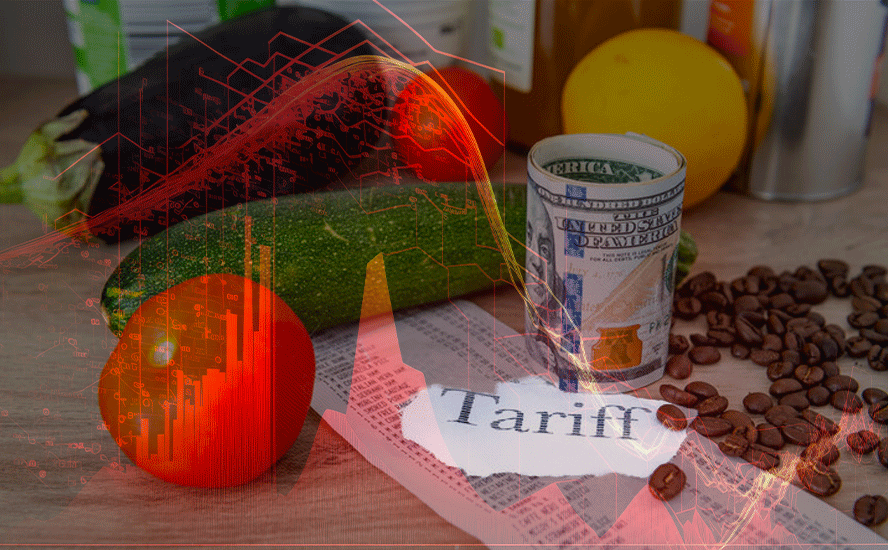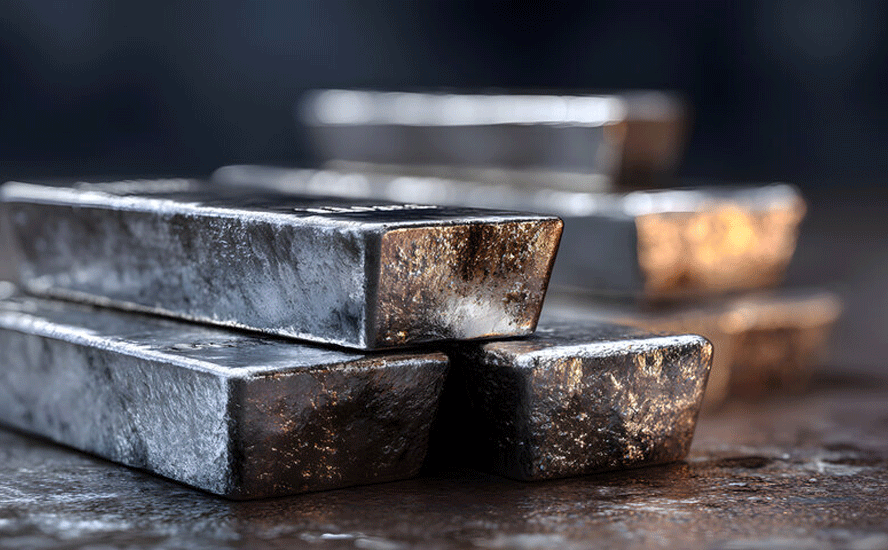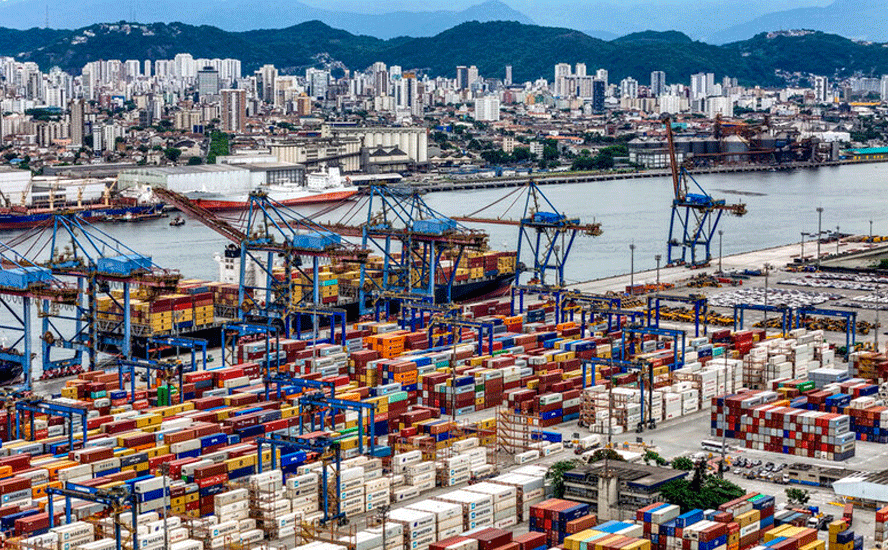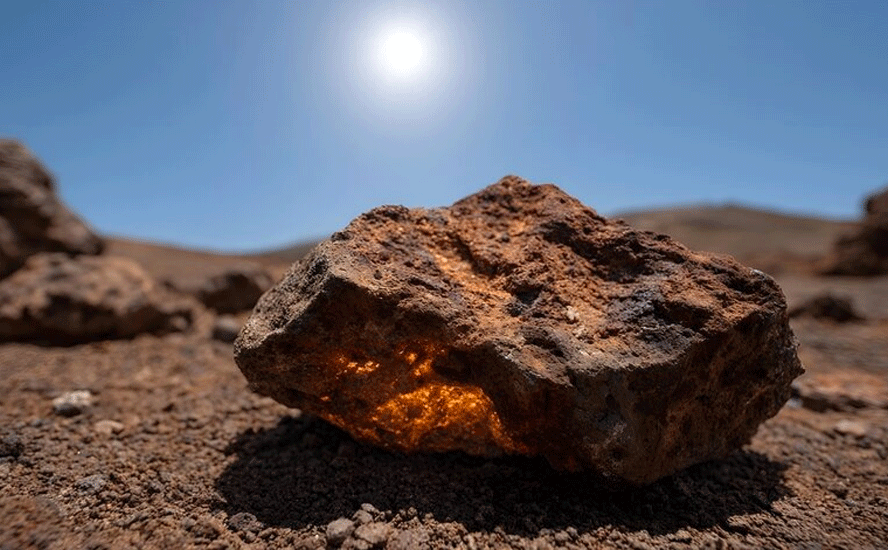‘Not hard to dig a hole’ anti-mining Democrats say
2021.05.27
Joe Biden’s position on mining has always been murky.
Publicly the veteran Senator turned US President says all the right things to show mine workers he is on their side. Away from the cameras Biden is listening to the anti-mining left wing of his Democratic Party controlled by liberal progressives and environmentalists, doing whatever he can to scupper new mining projects and oil pipelines.
It’s easy to make promises; governing requires a deft touch that balances competing interests. Five months into the Biden presidency, we now know how he plans to do it: reject mining and embrace electric vehicle manufacturing.
When Biden was running for president, he told US miners his campaign supported boosting domestic production of metals used to make electric vehicles, solar panels, wind turbines and other products crucial to his climate plan.
In counties hard-hit by Obama’s rigorous environmental regulations that slowed US mining, and parts of the country hosting the right metals, it was music to their ears.
Donations to Democrats from employees at US lithium miners like Albemarle Corp nearly doubled in 2020, compared to the election campaign in 2016.
Large mining companies like Glencore, which has a controlling interest in PolyMet’s copper mine project in Minnesota, were betting on a friendly reception from Biden should he win. It all appeared to be going according to plan.
Upon becoming president, Biden backed his earlier promise by proposing a $2.3 trillion infrastructure bill including a $174 billion investment to “win the EV market.” Now reduced to $1.7 trillion to appease Senate Republicans, Biden’s plan, pulling directly from the White House website, “will enable automakers to spur domestic supply chains from raw materials to parts, retool factories to compete globally, and support American workers to make batteries and EVs.”
Not only would the new president follow in Trump’s footsteps as an advocate for mining, but he would also support bipartisan efforts to foster a domestic supply chain for lithium, copper, rare earths, nickel and other strategic materials that the United States imports from China and other countries.
But there was a problem, and still is. Biden is a social democrat who believes in the power of the state to tax & spend, and to regulate industry for the greater good, according to standards set by the Democratic Party.
As Obama’s vice president, Biden was well regarded in conservation circles. One of his first acts upon inauguration was to impose a moratorium on oil and gas drilling in the Arctic National Wildlife Refuge. (Trump had lifted the ban and a day before Biden was inaugurated, finalized nine 10-year leases for oil drilling in the northernmost part of the refuge.)
Environmental groups across Minnesota, Nevada and Arizona, three battleground states that employ thousands of miners, said last October they would aggressively lobby Biden to oppose new mines should he defeat Trump.
Yet here was Biden supporting domestic mining. How could he square that with his pro-conservation views?
Confronted by the twin realities of climate change — a new report out Friday by the International Energy Agency says the world must bring about a “total transformation” of its energy system if it hopes to reach net-zero emissions by 2050 — and the fact that China has become the world’s largest producer or consumer of nearly all the metals needed in a green and high-tech economy, has forced Washington to re-think its metal sourcing strategy.
Yet special interests on the left must be placated.
The upshot is that Biden has backed off his earlier endorsement of the mining industry. According to sources with direct knowledge of the matter, who spoke to Reuters on condition of anonymity, Joe Biden will rely on ally countries to supply the bulk of the metals needed to build electric vehicles and focus on processing them domestically into battery parts, part of a strategy designed to placate environmentalists…
Rather than focus on permitting more U.S. mines, Biden’s team is more focused on creating jobs that process minerals domestically into electric vehicle (EV) battery parts, according to the people…
Such a plan would help cut U.S. reliance on industry leader China for EV materials while also enticing unions with manufacturing work…

“It’s not that hard to dig a hole. What’s hard is getting that stuff out and getting it to processing facilities. That’s what the U.S. government is focused on,” said one of the sources.
The approach would see the United States rely on Canada, Australia, and Brazil – among others – to produce most of the critical raw materials needed, while it competes for higher-value jobs turning those minerals into computer chips and batteries, according to the two sources.
Biden officials want to ensure the administration’s EV aspirations are not imperiled as domestic mines face roadblocks, the sources said, both from environmentalists and more then a few elected Democrats.
Securing the full supply chain from metals to batteries does not require the United States to be the primary producer of the raw materials, said one of the sources.
“It rings hollow when I hear everyone use this as a national defense argument, that we have to build new mines to have a greener economy,” said U.S. Representative Betty McCollum, a Democrat who has introduced legislation that would permanently block Antofagasta Plc’s (ANTO.L) proposed Twin Metals copper mine in Minnesota.
So lets get this straight: instead of building a “mine to EV” supply chain, Biden and his crew now want to skip the mining and go straight to the cleaner, manufacturing-intensive electric vehicle-building, that will supposedly bring plenty of jobs.
In effect what Biden is saying here, is that the US wants to replace China as the world’s supplier of batteries and EV’s, create its own green “one belt one road” by sourcing its raw materials — lithium, sulfide nickel, cobalt, etc. — from countries friendly to its interests, such as Canada, Australia and Brazil.
We shouldn’t be surprised at this because this is how the United States has always treated Canada, as the diminutive “hewer of wood, drawer of water” we have always been to them.
First Ottawa was disrespected by Trump for being among countries that would be targeted with trade tariffs on steel and aluminum and having to re-negotiate the North American Free Trade Agreement which was working well enough for both countries.
Canadians were hoping for a major shift with Biden regarding US-Canada relations, but this hasn’t happened. On his first day in office Biden canceled the Keystone XL pipeline that would have doubled the line’s capacity to accept Alberta oilsands crude, thereby helping to relieve a supply overhang that has kept Canadian crude prices depressed for years.
Our prime minister weakly agreed to the cancelation, as Alberta Premier Jason Kenney seethed.
More recently, Biden did nothing to stop US lumber interests from doubling the tariff on Canadian softwood lumber imports, a back and forth issue that has consistently turned in Canada’s favor according to international trade tribunals.
The higher prices are passed onto American home builders and ultimately, home buyers and renovators.
Why should we, as Canadians, agree to supply the US with cheap minerals (just like we export raw logs and how there are plans in place to divert huge amounts of fresh water state-side) so they can create new jobs and sell finished products back to us, when we could mine, process and build them here, by setting up our own mine to EV supply chain?
Wouldn’t Australia and Brazil, who have loads of critical minerals baked into their geologies, feel the same?
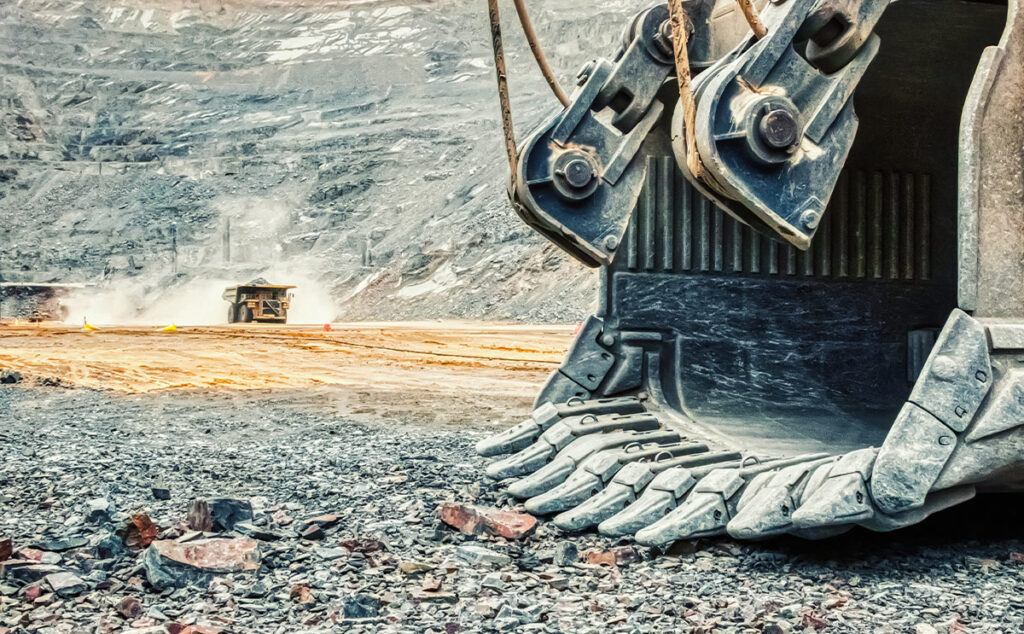
Instead, Canada should be following the same path as the government of Ontario, which last year joined with the federal government in a $600 million investment to help Ford transition to electric vehicles at its Oakville, ON plant.
A recent report found that Canada is rich in EV battery metals including graphite, lithium, nickel, cobalt, aluminum and manganese, and that the country has a “once in a generation” opportunity to establish itself as a leader in the global battery sector.
Should we forego this opportunity, to instead become yet another branch plant of the United States?
Moreover, Biden’s anti-mining strategy threatens to alienate a whole suite of interests it needs to have on-board its clean energy plan, in the lead-up to the point of no return regarding climate change. We now have only a decade left before scientists say the Earth will warm to the point when irreversible damage occurs.
These interests include mining companies that could employ US labor and help to fuel a post-pandemic recovery; unions that traditionally have been a strong base for the Democratic Party but whose mine workers turned to Trump last election and continue to feel alienated; and of course, Republicans.
From the above-mentioned Reuters article:
These ‘not-in-my-backyard’ extremists have made clear they want to lock up our land and prevent the mining of minerals,” U.S. Representative Lauren Boebert, a Colorado Republican, told a House Natural Resources Committee forum, held the same day as Biden’s Michigan visit.
“Let’s let Americans extract these minerals from the earth,” said Aaron Butler of United Association Local 469 union, which does work for Rio Tinto Ltd’s (RIO.AX) proposed Resolution copper mine project in Arizona and endorsed Biden in the elections. “These are good-paying jobs.”
The most egregious thing here is that it’s all politically motivated. The White House is reportedly working to enlist labor support [presumably not mining labor unions though] as it tries to build a case that its green policies are creating jobs, ahead of the 2022 midterm elections that could determine whether the strategy wins congressional backing, according to two organized labor sources familiar with the campaign.
Biden officials have reached out to unions across the country asking for specific job-boosting projects the administration can take credit for, the labor sources said.
Anti-mining decisions
Unbelievable. Question is, will Big Labor throw its mine worker brethren under the electric-vehicle bus, to stretch a metaphor, for job creation, and increased union membership, further down the supply chain, as the government moves to support battery manufacturing facilities and EV production plants?
Probably, but it’s worth reminding our audience that the Democrats have so far done everything in their power to stop new mines in their tracks.
For example, recent decisions by the Department of Justice and the US Army Corps of Engineers slammed the brakes on two proposed mines in Minnesota, both of which have faced resistance from environmental groups, Indian tribes and other communities. Twin Metals seeks to operate a large underground mine near a wilderness area while PolyMet is attempting to open an open-pit mine in the headwaters of the St. Louis River. And of course Northern Dynasty’s Pebble project in Alaska has taken the full brunt of environmental attacks for years.
NIMBY
The Democratic Party’s aversion to mining is, at least partially, a reflection of the American public’s reluctance to accept the extractive industry as part of the country’s future.
Mining rare earths? Too complicated. Too polluting. Let China do it. Let anybody do it but us. Its classic NIMBYism. The same goes for cobalt, lithium, sulfide nickel, or most of the other 35 minerals the US deems most critical to its economic and national security.
Even the Trump administration, which supported the US coal industry when the rest of the world was happy to see it die, was reluctant to fully embrace domestic mining.
In 2019 the Trump team introduced the Energy Resource Governance Initiative, an action plan to reduce US reliance on imported critical minerals.
ERGI’s mandate is to share mining expertise with countries in the group. So, the United States is going to help countries like the DRC, Namibia and Brazil — all of which have been courted by and “married” to China through numerous mineral offtake agreements and loans — to discover and develop mineral deposits of lithium, cobalt and copper, presumably so they can sell more of said minerals to their lead benefactor, China!
In exchange, these developing (ie. poor) countries accept China’s offer to build hundreds of billions worth of infrastructure, thus bringing them closer to Beijing and drawing them further away from the United States.
So far 10 countries have joined the US in the ERGI: Canada, Australia, Brazil, Botswana, Peru, Argentina, Democratic Republic of the Congo, Namibia, the Philippines and Zambia.
Process it here
In one of his more pithier comments, Biden said earlier this year that the United States ought to up its infrastructure game to stop China from “eating our lunch.”
Beijing is way ahead of the States in keeping its roads, bridges, water system, public buildings, and the like up to modern standards.
Another area the Chinese have progressed far beyond the United States, is mineral processing. It is a well-known fact that China doesn’t have a large supply of minerals; for that reason, it is the world’s largest buyer of mined commodities. Chinese companies have become experts in refining dozens of ores into metal end products.

China mines about half of the world’s rare earths but controls some 85% of rare earth element refining — a near monopoly.
It’s practically the same story for lithium-ion battery components. According to the Institute for Energy Research (IER), in 2019 Chinese chemical companies accounted for 80% of the world’s output of raw materials for advanced batteries. China controls the processing of pretty much all the critical minerals — rare earths, lithium, cobalt, and graphite. Of the 136 lithium-ion battery plants in the pipeline to 2029, 101 are based in China.
More recently, the Chinese have been concentrating their efforts in Indonesia, where they are attempting to put a lock on nickel refining.
This week China’s Zhijiang Huayou Cobalt Co announced it will partner with companies including a unit of battery maker EVE Energy to set up a $2 billion nickel and cobalt smelting project.
The archipelago nation wants to become a global hub for producing and exporting electric vehicles to Asia and possibly Australia.
The site at Weda Bay on the island of Halmahera is where Huayou already partners with Tsingshan Holding Group, in a nickel sulfate project that aims to produce about 120,000 tonnes of nickel and 15,000 tonnes of cobalt per annum (tpa).
Tsingshan is the biggest nickel producer in Indonesia and the world’s top stainless steel maker, a media report states.
There are a number of other Chinese-backed nickel plants under construction in Indonesia including the Huayue project on Sulawesi island, where Tsingshan and China Molybdenum plan to produce 60,000 tpa.
Back to the United States, very little in the way of critical minerals gets mined or processed domestically, creating a supply insecurity the country is only now beginning to address.
Currently the US mines rare earths from the Mountain Pass mine in California, and exports them to China for processing. No other REE mines or processing facilities exist, although one is starting up in Texas. In February Australian rare earths miner Lynas was awarded a $30.4 million contract by the Department of Defense to construct a rare earth metal processing plant in Hondo, TX specializing in the extraction of heavy rare earth metals. Other US companies planning to get in the rare earths mining game include USA Rare Earth, which partnered with Texas Mineral Resources Corp to open a rare earth mine at Round Top Mountain, Texas; and Urban Mining Co, which has a process to recycle rare earth metals reclaimed from industrial waste.
Albemarle last summer idled a portion of its Silver Peak mine in Nevada, the country’s only lithium operation, and its Kings Mountain lithium hydroxide production facility in North Carolina, citing weak lithium demand. Most (93%) of US lithium is imported from Chile and Argentina.
Last year the country mined only 600 tonnes of cobalt compared to 95,000 tonnes in the DRC, by far the largest producer, and no natural graphite — the form needed for the lithium-ion battery anode — compared to 650,000 tonnes mined in China and 120,000t in Mozambique, the top two producers.
Conclusion
To be seen as a major player by the battery metals industry, and to reduce the risk of supply chain bottlenecks (such as the current chip shortage that is disrupting EV/ auto production) the US needs to start mining and processing its own critical minerals.
As noted in the previous section, a start has been made, but more needs to be done. We should be building more mines in North America, not closing them, as the hunt for critical minerals and less rare industrial metals like copper, a key ingredient of electrification/ decarbonization, intensifies.
The Biden administration started off appearing to support mining, as it set about developing policies around climate action, but their position has changed. There are no plans to prioritize exploration and the streamlining/ fast-tracking of permits to expedite mine-building. Instead, the focus will be on manufacturing plants.
Biden’s clean energy plan would spend $2 trillion over four years to transition the economy to net-zero emissions. A large percentage of these expenditures will go towards the purchase of raw materials like rare earths that come from China, lithium from South America and quite likely, nickel sulfate produced in Indonesia by Chinese companies. Rather than lessening US dependence on foreign metal suppliers, Biden’s anti-mining clean energy program will increase it.
The US President prefers to replace fossil-fuel jobs with positions in clean energy manufacturing. But as Politico writes in a recent special report, many of the jobs Democrats champion appear nebulous to voters on the ground. The median solar worker is paid $24.48 per hour compared with $30.33 per hour for natural gas employees, a study by the Energy Futures Initiative run by former Obama Administration Energy Secretary Ernest Moniz found.
Here’s an idea: instead of re-training unemployed coal miners, how about relocating them to where the new mines are, in places with reserves of lithium, nickel, rare earths and other green economy metals? They’re miners, after all!

In iron ore country, many residents are angry at the way they have been treated by previous Democratic administrations.
“Lifelong politicians like Joe Biden are out of touch with the working class, out of touch with what the country needs, and out of touch with those of us here on the Iron Range and in small towns like ours across our nation,” local mayors told a Guardian reporter who talked to rural Minnesotans during the 2020 election campaign.
The anger stems from anti-mining decisions, like when Obama blocked a large copper-nickel mine in Minnesota’s Superior national forest whose owners said would last for decades. Trump lifted the block and won the support of many working-class Minnesotans for standing up to China by imposing steel tariffs they say have injected new life into the industry and the Iron Range, according to the Guardian’s October 2020 article.
With Biden and his anti-mining Democrats in charge, what’s going to happen to places like the Iron Range; the lithium-rich Clayton Valley in Nevada; Alaska where the largest graphite deposit in the country is being developed; the Resolution copper project in Arizona that has encountered opposition by local native groups and could use some government support, but which will almost certainly wither on the vine?
The Democrats have abandoned “dirty” mining for clean manufacturing and the result was a large pool of disaffected voters migrated to the Trump base. Have they learned nothing from the past?
An EV supply chain that involves actual mining, is still possible in the United States but it won’t happen without a shift in government policy. It’s shameful, in my opinion, that Biden has chosen to play politics with something so vital to the future US economy.
Richard (Rick) Mills
aheadoftheherd.com
subscribe to my free newsletter
Legal Notice / Disclaimer
Ahead of the Herd newsletter, aheadoftheherd.com, hereafter known as AOTH.
Please read the entire Disclaimer carefully before you use this website or read the newsletter. If you do not agree to all the AOTH/Richard Mills Disclaimer, do not access/read this website/newsletter/article, or any of its pages. By reading/using this AOTH/Richard Mills website/newsletter/article, and whether you actually read this Disclaimer, you are deemed to have accepted it.
Any AOTH/Richard Mills document is not, and should not be, construed as an offer to sell or the solicitation of an offer to purchase or subscribe for any investment.
AOTH/Richard Mills has based this document on information obtained from sources he believes to be reliable, but which has not been independently verified.
AOTH/Richard Mills makes no guarantee, representation or warranty and accepts no responsibility or liability as to its accuracy or completeness.
Expressions of opinion are those of AOTH/Richard Mills only and are subject to change without notice.
AOTH/Richard Mills assumes no warranty, liability or guarantee for the current relevance, correctness or completeness of any information provided within this Report and will not be held liable for the consequence of reliance upon any opinion or statement contained herein or any omission.
Furthermore, AOTH/Richard Mills assumes no liability for any direct or indirect loss or damage for lost profit, which you may incur as a result of the use and existence of the information provided within this AOTH/Richard Mills Report.
You agree that by reading AOTH/Richard Mills articles, you are acting at your OWN RISK. In no event should AOTH/Richard Mills liable for any direct or indirect trading losses caused by any information contained in AOTH/Richard Mills articles. Information in AOTH/Richard Mills articles is not an offer to sell or a solicitation of an offer to buy any security. AOTH/Richard Mills is not suggesting the transacting of any financial instruments.
Our publications are not a recommendation to buy or sell a security – no information posted on this site is to be considered investment advice or a recommendation to do anything involving finance or money aside from performing your own due diligence and consulting with your personal registered broker/financial advisor.
AOTH/Richard Mills recommends that before investing in any securities, you consult with a professional financial planner or advisor, and that you should conduct a complete and independent investigation before investing in any security after prudent consideration of all pertinent risks. Ahead of the Herd is not a registered broker, dealer, analyst, or advisor. We hold no investment licenses and may not sell, offer to sell, or offer to buy any security.
Legal Notice / Disclaimer
Ahead of the Herd newsletter, aheadoftheherd.com, hereafter known as AOTH.Please read the entire Disclaimer carefully before you use this website or read the newsletter. If you do not agree to all the AOTH/Richard Mills Disclaimer, do not access/read this website/newsletter/article, or any of its pages. By reading/using this AOTH/Richard Mills website/newsletter/article, and whether you actually read this Disclaimer, you are deemed to have accepted it.





